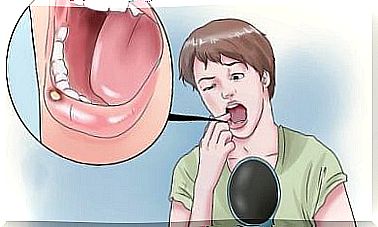6 Effects Of Mental Abuse You Should Know About
The effects of physical abuse are easy to see, and even estimate. No one can hide a broken arm, a purple eye, a burn, a swollen lip, a blow …

We should never think that we are guilty of the psychological abuse to which we are subjected. No one has the right to harm us.
The consequences of physical abuse are easy to see and estimate. No one can hide a broken arm, a purple eye, a burn, a swollen lip, a blow …
However, when we talk about psychological abuse, manipulation, mistreatment and emotional assault, things change.
It cannot be seen objectively, neither at first glance, nor with a radio. The complexity is such, like the invisible impact it leaves, that the victim often finds himself unable to seek help.
How to explain it, how to hope that one believes me if it is the self-esteem which takes a blow, its own identity and the entirety of our being?
It is not easy. In particular because, very often, there are no suitable mechanisms so that the woman or the man who suffers from this abuse can take the step and dare to expose his reality.
Sometimes we don’t dare. The fear is there and we fear the possible consequences… Above all, not to be believed.
Psychological abuse is devastating and destroys entire lives for a very real reason: it comes from the hands of the very close, the people we trust and love at times.
Now let’s look at the impact of this violence on our minds and our emotions.
-
Feelings of shame and guilt – psychological abuse

If there is anything sad, it is to be able to make us guilty of everything that happens to us.
There is something very common about people who see psychological manipulation from an external point of view.
We refer to certain sentences: “if the person is mistreated it is because he allows himself to be mistreated”, “that he is weak because he allows himself to be humiliated, hurt and controlled”.
- You have to be careful with this type of sentence because the person who suffers from abuse is subjected to emotional chaos and goes through a very complex situation from which it is very difficult to get out.
It is common for them to feel ashamed when they wonder how they got there.
Likewise, they often feel incapable of reacting, they feel alone and isolated, which makes it difficult to get out of this personal abyss.
2. Loss of memory or feeling of unreality
When we are under a high level of anxiety, stress and constant suffering, it is common for brain structures like the memory-related hippocampus to lose volume and connectivity.
- The person has blackouts, cannot concentrate or make decisions with a clear mind.
- On the other hand, the feeling of unreality is another common factor.
It is a defense mechanism by which the mind establishes a distance from reality in order to depersonalize it, in order to think “this is not happening to me”.
3. Emotional instability, strong ups and downs
Sometimes we think that things can change, that everything can get better, and that it is possible to regain happiness, integrity and balance.
However, the abyss and relapse come quickly. Frustration, anger, rage, then despair and fear appear.
It is common to experience a kaleidoscopic complex of sensations and emotions where the person is aware that they are not in control of their life.
4. Psychological abuse and recurrent physical pain

Victims of psychological abuse do not enjoy themselves physically, but the suffering they suffer sooner or later in their body causes them to suffer in the same way.
Chronic emotional discomfort ends up appearing through a characteristic symptomatology such as fatigue, insomnia, headaches, muscle and joint pain, poor digestion, multiple infections contracted due to a weakened immune system …
This is, without a doubt, something very common.
5. The feeling that “there is no way out”
Vulnerability is another common symptom. The person who is suffering from abuse will come to think at a time that nothing that they do not do will help them.
- Very often, they manage to say on their own that no word, no action or change they could put in motion could stop this abuse.
- This reminds us, once again, of the critical importance of being receptive and sensitive to all people who in some way suffer from some type of abuse.
When we doubt or when we say aloud words like “but what is he saying to me?”, “Are you sure he is doing this to you or it is you who exaggerating things? ”…
By saying this, people can fall further into depression. They move away and feel the loneliness even more intensely.
6. Thoughts of suicide and psychological abuse
The moment the person thinks there is no way out, thoughts of suicide start to arise. However, these are only sudden ideas at the beginning, momentary desires.
However, the fateful moment when suicide emerges as the solution will eventually come.
The entourage must be very sensitive to all indicators, words, gestures, behavior.
Because psychological abuse, even more than what we believe, leaves traces, obvious marks on the behavior of people.
Let’s be aware of these realities and help those who need it most .









